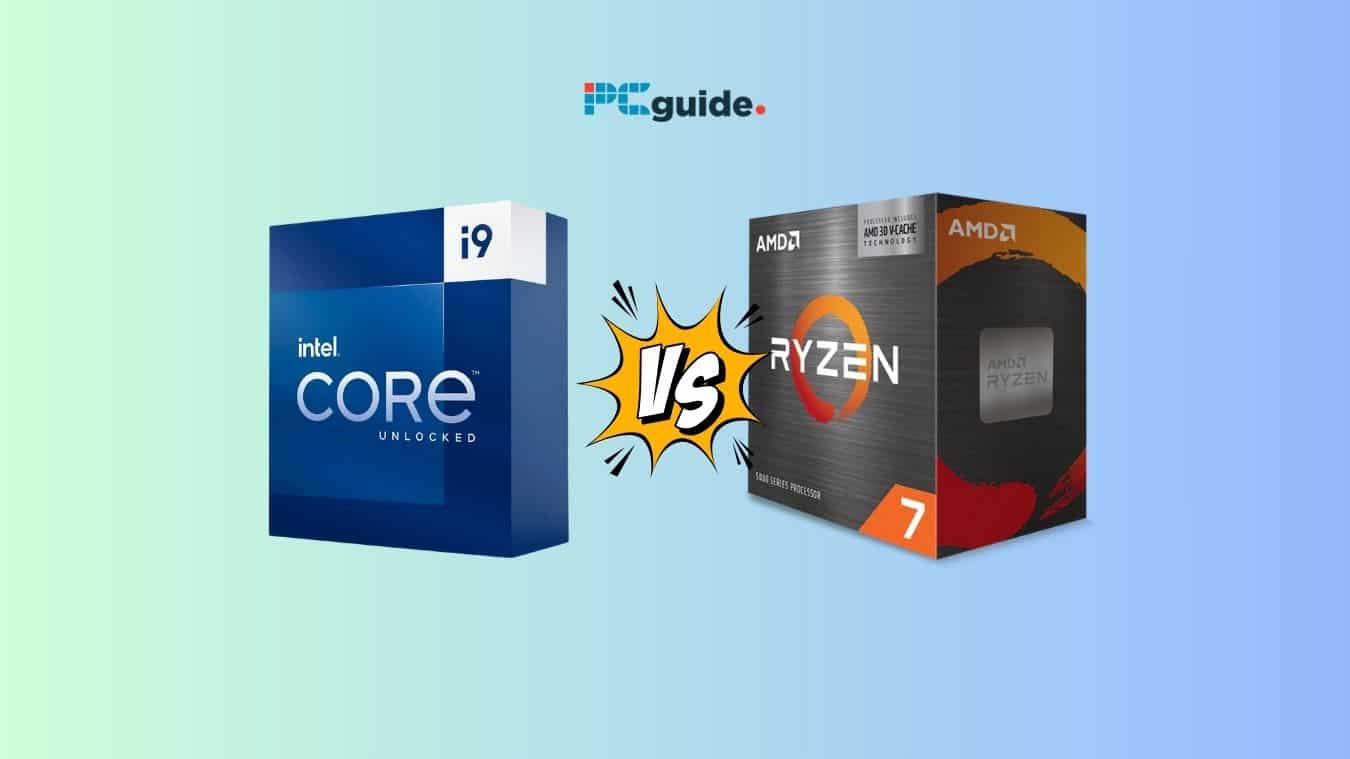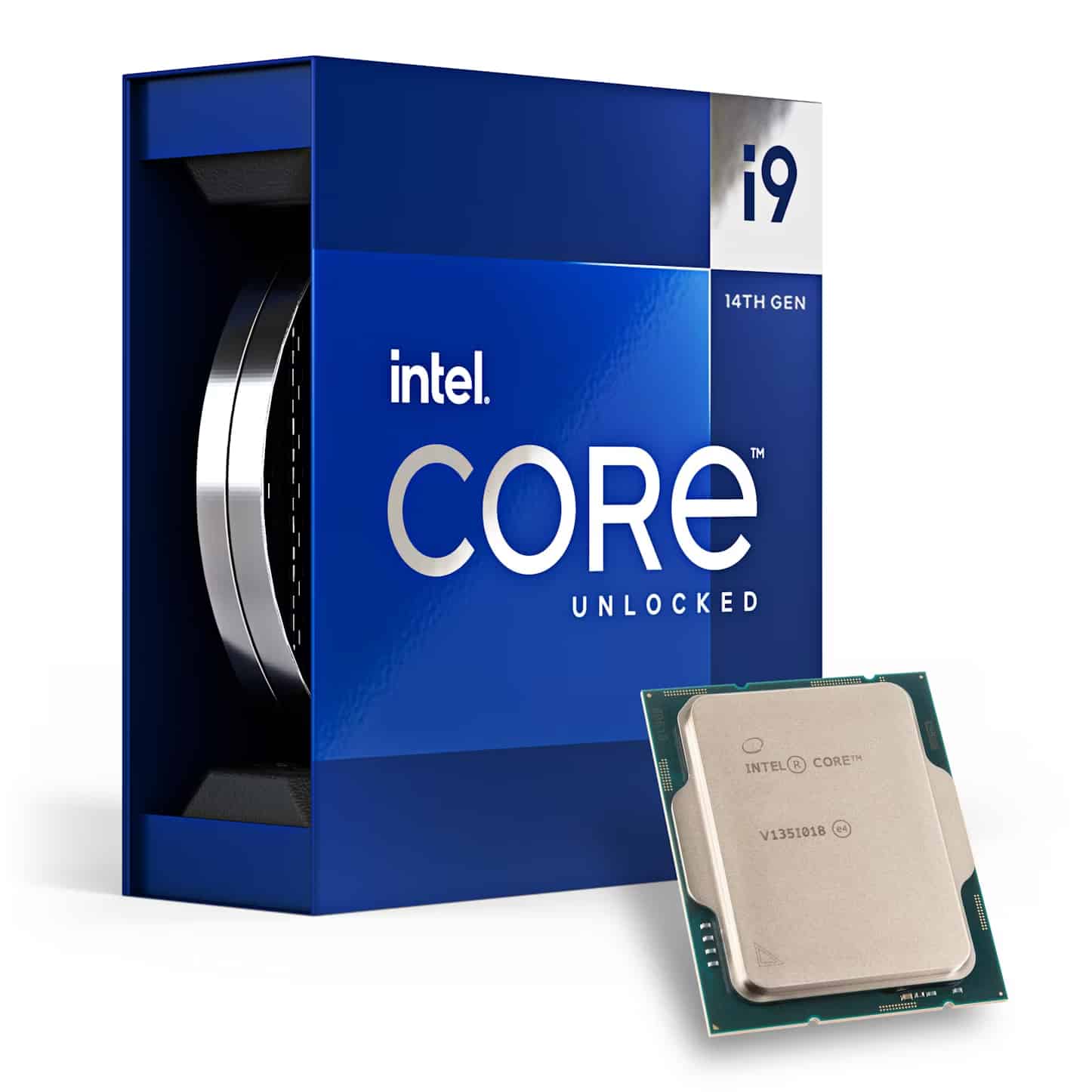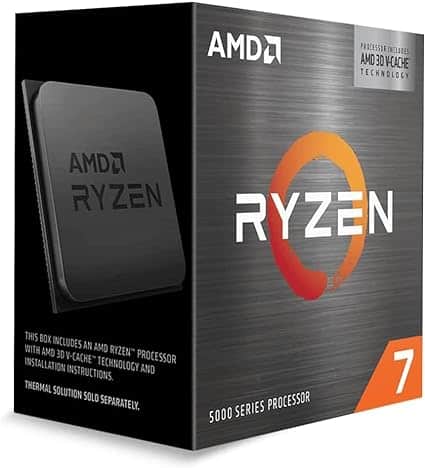Intel Core i9 14900KS vs Ryzen 7 5800X3D: Is Ryzen better for gaming?

Table of Contents
The battle of the processors continues to heat up as rumors swirl around the upcoming Intel Core i9 14900KS. Today, we will compare the Intel Core i9 14900KS vs. Ryzen 7 5800X3D. We will compare the specifications, performance, and price/value for both these CPUs. We will also specifically look at if the Ryzen 7 5800X3D is better for gaming, and if yes, why so?
Intel Core i9 14900KS vs. Ryzen 7 5800X3D: Specs comparison
In the evolving landscape of high-performance desktop computing, the Intel Core i9 14900KS and AMD’s Ryzen 7 5800X3D emerge as leading contenders, each bringing unique attributes to the table. Let’s explore how these CPUs stack up in a detailed specs comparison.
Prime Day is finally here! Find all the biggest tech and PC deals below.
- Sapphire 11348-03-20G Pulse AMD Radeon™ RX 9070 XT Was $779 Now $739
- AMD Ryzen 7 7800X3D 8-Core, 16-Thread Desktop Processor Was $449 Now $341
- ASUS RTX™ 5060 OC Edition Graphics Card Was $379 Now $339
- LG 77-Inch Class OLED evo AI 4K C5 Series Smart TV Was $3,696 Now $2,796
- Intel® Core™ i7-14700K New Gaming Desktop Was $320.99 Now $274
- Lexar 2TB NM1090 w/HeatSink SSD PCIe Gen5x4 NVMe M.2 Was $281.97 Now $214.98
- Apple Watch Series 10 GPS + Cellular 42mm case Smartwatch Was $499.99 Now $379.99
- ASUS ROG Strix G16 (2025) 16" FHD, RTX 5060 gaming laptop Was $1,499.99 Now $1,274.99
- Apple iPad mini (A17 Pro): Apple Intelligence Was $499.99 Now $379.99
*Prices and savings subject to change. Click through to get the current prices.
Core configuration
The Intel Core i9 14900KS looks to redefine the concept of multitasking and efficiency in the desktop CPU arena. With a robust configuration of 24 cores and 32 threads, including 8 performance cores and 16 efficiency cores, this Raptor Lake processor is geared towards users who demand unparalleled multitasking capabilities and high-efficiency levels. In contrast, the Ryzen 7 5800X3D adheres to a more traditional design, featuring 8 physical cores and 16 threads, which still delivers outstanding performance, especially in applications optimized for its architecture.
Clock speeds
Intel appears to push the envelope further, with the Core i9 14900KS’s boost clock speed reaching an impressive 6.2 GHz, setting a new benchmark for single-threaded performance. This makes it exceptionally well-suited for demanding applications and popular PC games like God of War and Assassin's Creed Valhalla, where higher clock speeds can significantly impact gaming responsiveness. The Ryzen 7 5800X3D, with a boost frequency of 4.5 GHz, while lower, still offers competitive performance, particularly in gaming scenarios that benefit from its advanced 3D V-Cache technology.
Cache size
When it comes to cache size, both processors exhibit strengths in different areas. The Intel CPU boasts a larger L2 cache of 32 MB and an L3 cache of 36 MB, providing a sizable reservoir for data storage close to the processing cores, enhancing efficiency for tasks that frequently access cache memory. The AMD CPU, however, features a revolutionary L3 cache of 96 MB due to its 3D V-Cache technology, potentially offering superior performance in cache-sensitive tasks despite its smaller L2 cache of 512 KB per core.
Thermal design power (TDP) and efficiency
The TDP of these processors reflects their power consumption and heat generation characteristics. The Intel Core i9 14900KS has a TDP of 150 W, indicative of its powerful performance capabilities but also suggesting the need for more robust cooling solutions. Conversely, the Ryzen 7 5800X3D with a TDP of 105 W underscores AMD’s commitment to energy-efficient computing, possibly allowing for quieter and cooler operation, particularly appealing for users with constrained cooling options or those seeking a more energy-efficient AMD CPU.
Specs comparison table
| Feature | Intel Core i9 14900KS | Ryzen 7 5800X3D |
|---|---|---|
| Process Technology | Raptor Lake (10nm) | 7nm |
| Physical Cores/Threads | 8/16 | 8/16 |
| Boost Clock Speed | Up to 6.2 GHz | Up to 4.5 GHz |
| L2 Cache | 32 MB | 4 MB (512 KB per core) |
| L3 Cache | 36 MB | 96 MB |
| TDP | 150 W | 105 W |
| Notable Features | High single-threaded performance, Raptor Lake architecture | 3D V-Cache, superior gaming performance with specific titles |
| AES-NI | Supported | Supported |
| PCIe Support | PCIe 5.0 | PCIe 4.0 |
| Recommended for | High-end desktop users, content creators | Gamers, efficiency-focused users |
Intel Core i9 14900KS vs. Ryzen 7 5800X3D: Performance
When comparing the performance of the Intel Core i9 14900KS and the Ryzen 7 5800X3D, both CPUs are engineered to meet the high demands of modern computing, from gaming to professional content creation. Let's delve deeper into how these processors might perform in various scenarios.
Multi-threaded workloads and content creation
Intel Core i9 14900KS has a higher core and thread count, alongside impressive boost frequencies. This configuration is particularly beneficial for multithreaded workloads, such as content creation, video rendering, and complex computational tasks. Its advanced architecture might leverage memory bandwidth and PCIe connections more efficiently, ensuring that all components, including NVMe SSDs, operate at peak performance.
Gaming and single-core performance
The Ryzen 7 5800X3D, with its 3D V-Cache technology, aims to revolutionize gaming performance by significantly increasing cache memory to reduce latency in popular titles like Red Dead Redemption, Horizon Zero Dawn, Cyberpunk, and Watch Dogs Legion. Despite potentially lower boost frequencies compared to the i9-14900KS, its single-core performance remains robust, likely offering smooth gameplay experiences.
Furthermore, the Ryzen’s power supply efficiency, marked by a lower TDP, appeals to users who value energy savings and effective thermal management, potentially reducing the need for an elaborate cooling system.
Integrated graphics and system compatibility
While integrated graphics may not be the primary concern for users pairing these CPUs with high-end graphics cards, they do play a crucial role in overall system versatility. The i9-14900KS’s integrated graphics could offer basic graphical outputs without the need for a discrete GPU, beneficial for non-gaming related tasks.
Compatibility with the motherboard and other PC components is crucial for maximizing the potential of either CPU. Both processors support advanced PCIe standards for components like NVMe SSDs, ensuring fast data transfer rates and quick system responsiveness. However, ensuring the motherboard and power supply can accommodate the specific demands of these high-performance CPUs is essential for system stability and performance.
Performance table comparison
| Specification | Core i9-14900KS | Ryzen 7 5800X3D | Notes |
|---|---|---|---|
| Performance Cores (P-Cores) | 8 | 8 | Cores alone don’t tell the whole story |
| Efficiency Cores (E-Cores) | 16 | 0 | i9-14900KS wins for multi-tasking |
| Base Clock Speed | 3.2 GHz | 3.4 GHz | Small difference, i9-14900KS turbo clock is much higher |
| Max Turbo Frequency | 6.2 GHz | 4.5 GHz | i9-14900KS likely offers better single-core boost |
| L3 Cache | 36MB | 96MB | Ryzen’s 3D V-Cache is a gaming advantage |
| TDP | 150W | 105W | i9-14900KS will need a more powerful cooler |
Important notes:
- Specific games can be optimized for either Intel or AMD, impacting results.
- NVMe SSD performance, memory bandwidth, and motherboard choice also impact overall system performance.
Intel Core i9 14900KS vs. Ryzen 7 5800X3D: Price and value
While pricing details for the Intel Core i9 14900KS have yet to be confirmed, it’s safe to assume that it will command a premium price tag upon release. On the other hand, the AMD Ryzen 7 5800X3D is bound to be available at a lower price, at around $450 or $500.
The value proposition of each chip will ultimately depend on factors such as performance, power efficiency, and platform compatibility, all of which should be carefully weighed against the user’s specific needs and budget constraints.
Price and value table
| Factor | Core i9-14900KS (Likely) | Ryzen 7 5800X3D | Notes |
|---|---|---|---|
| Launch Price | $689 | $449 | “KS” Intel chips are usually premium priced |
| Current Price | Unknown (Not yet released) | Can be found around $330 | CPU prices often drop over time |
| Release Date | Q4 2024 | Released April 2022 | Older CPUs can get discounted |
| Performance Gains | Significant in multi-core, decent in single-core | Excellent, with gaming edge due to 3D V-Cache | Is the extra performance worth the higher cost of the Intel chip? |
| Target User | Enthusiasts needing maximum power | Gamers, content creators seeking great performance/price ratio | Depends on your workload intensity |
Final verdict
The scales seem to tip the Intel chip in speculative comparisons between the Intel Core i9-14900KS and the Ryzen 7 5800X3D. With its purported higher core count, impressive boost frequencies, and advanced architectural features, the Core i9-14900KS appears poised to deliver exceptional performance across various computing tasks, including gaming.
However, it’s essential to recognize that both processors cater to different user segments and prioritize varying aspects of performance and efficiency. While the Core i9-14900KS may excel in raw computational power and multi-threaded workloads, the Ryzen 7 5800X3D leverages innovative technologies like 3D V-Cache to enhance gaming performance and is budget-friendly.


